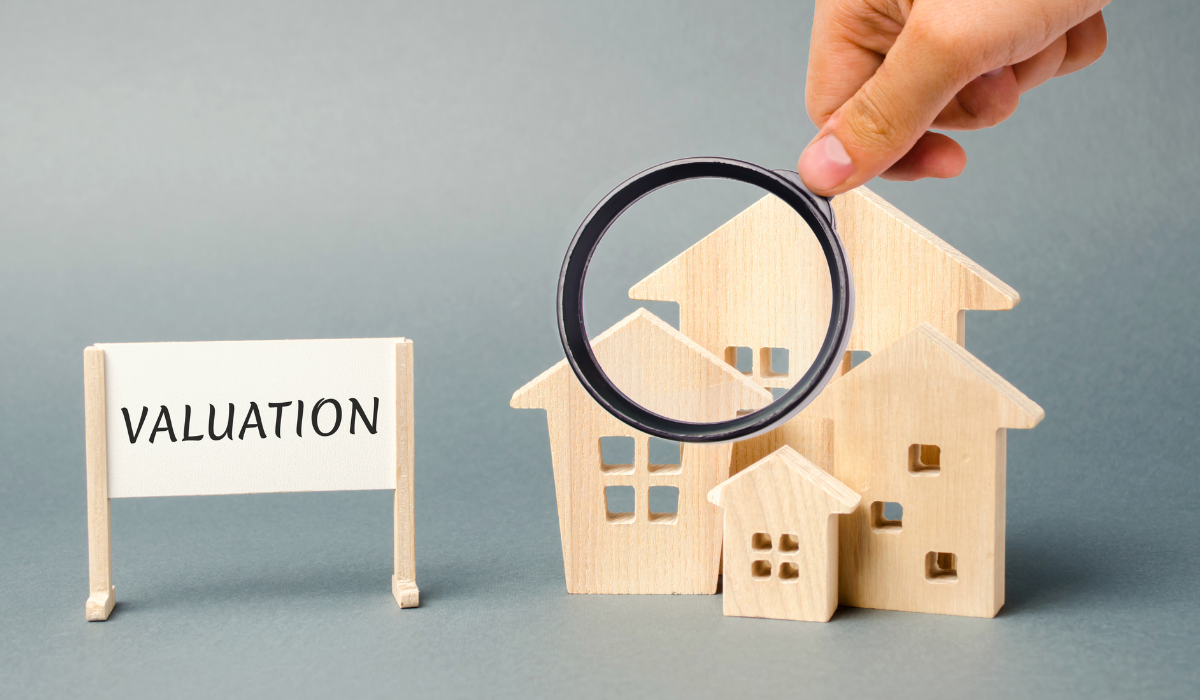The Pros and Cons of Buying vs. Renting a Home
Choosing between buying and renting a home is a significant financial choice that impacts your lifestyle, finances, and long-term plans. Both options offer distinct advantages and drawbacks, and the right decision depends on individual circumstances, financial goals, and personal preferences.
Pros of Buying a Home:
- Equity and Investment : One of the primary benefits of buying a home is building equity. As you pay down your mortgage, you own more of the property, which can be a valuable asset in the future.
- Stability and Predictability : Homeownership provides stability since you’re not subject to rent increases or the whims of landlords. You have more control over your living situation.
- Potential for Appreciation : Real estate historically appreciates over time, offering you a return on your investment when you sell your home.
- Customization and Personalization : Homeowners have the freedom to customize their living space according to their preferences, from renovations to landscaping.
- Tax Benefits : Mortgage interest and property tax deductions can provide homeowners with significant tax savings, depending on local tax laws.
Cons of Buying a Home:
- Upfront Costs and Maintenance : Buying a home requires a substantial upfront investment, including a down payment, closing costs, and ongoing maintenance expenses.
- Risk of Value Decline : Real estate markets can fluctuate, and your home may lose value, especially in economic downturns.
- Less Flexibility : Selling a home can be time-consuming and costly, limiting your ability to relocate quickly for career or personal reasons.
- Responsibility for Repairs : Homeowners are responsible for all maintenance and repairs, which can add up over time and require time and effort to manage.
- Market Dependency : The value of your home and property taxes can be influenced by local market conditions and government policies.
Pros of Renting a Home:
- Flexibility : Renting offers flexibility, allowing you to move more easily without the commitment of selling a property.
- Lower Upfront Costs : Renting typically requires a smaller upfront financial commitment compared to buying, with no need for a large down payment or closing costs.

- Predictable Costs : Rent payments usually cover most utilities and maintenance costs, providing predictable monthly expenses.
- No Property Value Risk : Renters are not exposed to potential declines in property value or market fluctuations.
- Fewer Responsibilities : Landlords are responsible for most maintenance and repairs, relieving renters of these tasks and costs.
Cons of Renting a Home:
- Lack of Equity : Rent payments do not build equity or contribute to long-term wealth accumulation.
- Rent Increases : Landlords can increase rent prices periodically, potentially impacting your budget and financial planning.
- Limited Control and Customization : Renters have limited freedom to customize or renovate their living space without landlord approval.
- No Tax Benefits : Unlike homeowners, renters do not benefit from mortgage interest deductions or property tax benefits.
- Long-term Cost Considerations : While renting may be cheaper in the short term, long-term renting can be more expensive than homeownership due to rent increases over time.
Factors to Consider Before Making a Decision:
- Financial Situation : Assess your current financial stability, including savings, income stability, and debt obligations. Buying a home requires a solid financial foundation to handle mortgage payments, property taxes, and maintenance costs.
- Long-Term Goals : Consider your long-term plans and how homeownership or renting fits into them. Are you planning to stay in one location for several years, or do you anticipate moving frequently? Your housing choice should align with your plans.
- Market Conditions : Evaluate the local real estate market trends, including property values, rental prices, and availability. Understanding market conditions can help you make a more informed decision about buying or renting.
- Maintenance and Lifestyle Preferences : Think about your willingness and ability to maintain a property. Homeownership requires time and effort for upkeep while renting offers convenience with less maintenance responsibility.
- Investment Considerations : Beyond the home itself, consider the potential for alternative investments with the money you would use for a down payment. Compare the expected return on investment in real estate versus other investment options.
Regional Variations and Cultural Factors:
- Geographic Variations : Housing markets vary widely across regions and cities. Factors such as job market strength, population growth, and local amenities can impact both housing prices and rental affordability.
- Cultural Norms : Cultural attitudes towards homeownership versus renting can influence personal preferences. In some cultures, owning a home is seen as a milestone and a symbol of stability, while others prioritize the flexibility and mobility offered by renting.
Emerging Trends and Alternatives:
- Rent-to-Own Options : Some individuals opt for rent-to-own agreements, where a portion of monthly rent payments goes towards purchasing the property in the future. This can be a viable option for those who want to build equity gradually.
- Co-Living and Shared Spaces : Increasingly popular among young professionals and students, co-living arrangements offer affordable housing with shared amenities and a community-focused environment, blending aspects of renting and shared ownership.
- Digital Nomadism and Remote Work : The rise of remote work has led to a surge in digital nomadism, where individuals work remotely while moving frequently. Renting or short-term leases may be more suitable for this lifestyle, providing flexibility and mobility.
Decision-making Process:
- Consultation with Financial Advisors : For complex financial decisions like buying a home, consulting with a financial advisor can provide personalized insights and guidance based on your financial situation and goals.
- Careful Consideration of Costs : Beyond mortgage payments or rent, consider other costs like property taxes, homeowners association fees (if applicable), insurance, and potential maintenance expenses. A thorough cost analysis can help you determine the overall affordability of homeownership versus renting.
- Personal Satisfaction and Quality of Life : Ultimately, your housing choice should contribute to your overall happiness and quality of life. Consider factors such as neighborhood preferences, proximity to work or schools, and community amenities that align with your lifestyle.
Conclusion
The decision between buying and renting a home is multifaceted, influenced by financial considerations, lifestyle preferences, and long-term goals. By carefully evaluating these factors and considering regional variations and emerging trends, you can make an informed decision that aligns with your personal and financial objectives. Whether you choose to invest in homeownership for long-term stability or opt for the flexibility of renting, each option offers unique advantages and considerations to weigh carefully.
For personalized guidance and to explore real estate opportunities in Atlanta, contact us at The Perfect Piece Atlanta . Our team is here to help you navigate the complexities of the housing market and find the perfect place to call home.
FAQs
What are the pros of buying a home?
Buying a home offers several advantages:
- Equity and Investment : Building equity as you pay down your mortgage.
- Stability and Predictability : Control over living costs without rent fluctuations.
- Potential for Appreciation : Real estate can increase in value over time.
- Customization and Personalization : Freedom to modify your home as you wish.
- Tax Benefits : Potential deductions for mortgage interest and property taxes.
What are the cons of buying a home?
Consider these drawbacks:
- Upfront Costs and Maintenance : Significant initial investment and ongoing upkeep.
- Risk of Value Decline : Market fluctuations can impact property value.
- Less Flexibility : Selling a home can take time and effort.
- Responsibility for Repairs : You’re responsible for maintenance and repairs.
- Market Dependency : Local market conditions affect property value and taxes.
What are the pros of renting a home?
Renting has its advantages:
- Flexibility : Easier to relocate without selling property.
- Lower Upfront Costs : No sizeable down payment or closing costs.
- Predictable Costs : Rent covers most utilities and maintenance.
- No Property Value Risk : Immunity to market fluctuations.
- Fewer Responsibilities : Landlord handles most maintenance.
What are the cons of renting a home?
Consider these limitations:
- Lack of Equity : Rent payments do not build ownership equity.
- Rent Increases : Landlords can raise rent periodically.
- Limited Control and Customization : Restrictions on home modifications.
- No Tax Benefits : Unlike homeowners, renters do not enjoy tax deductions.
- Long-term Cost Considerations : Rent may increase over time, potentially becoming more expensive than owning.
What factors should I consider before deciding to buy or rent?
Key considerations include:
- Financial Situation : Assess savings, income stability, and debt.
- Long-Term Goals : Align housing choices with plans.
- Market Conditions : Understand local real estate trends.
- Maintenance and Lifestyle Preferences : Consider upkeep responsibilities.
- Investment Considerations : Evaluate alternative investment opportunities.
How do regional variations and cultural factors influence the decision?
Factors like housing market strength, population growth, and cultural norms towards homeownership affect affordability and personal preferences.
What are emerging trends and alternatives to traditional buying or renting?
Consider options like:
- Rent-to-Own : Gradual equity buildup through rent payments.
- Co-living : Shared housing with communal amenities.
- Digital Nomadism : Renting or short-term leases for remote workers.
What’s the decision-making process for buying or renting?
Steps include:
- Consultation with Financial Advisors : Seek personalized financial advice.
- Careful Cost Consideration : Analyze all housing-related expenses.
- Quality of Life : Choose a home that enhances personal satisfaction.
The post The Pros and Cons of Buying vs. Renting a Home appeared first on Perfect Piece.











